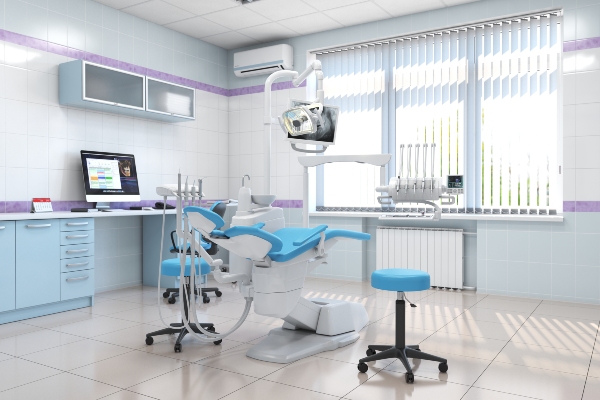What to Expect When Getting X-rays From a General Dentist
 Many patients visiting a general dentist do not fully understand the use of dental X-rays. Patients may wonder if this type of imaging is completely necessary, and it is important to understand the risks and benefits of the procedure. Dental X-ray exposure is safer than ever before, and when patients are knowledgeable about the procedure, they can make informed decisions. For those curious about this tool used in dentistry, research and learning is essential to feel at ease at the next dental appointment.
Many patients visiting a general dentist do not fully understand the use of dental X-rays. Patients may wonder if this type of imaging is completely necessary, and it is important to understand the risks and benefits of the procedure. Dental X-ray exposure is safer than ever before, and when patients are knowledgeable about the procedure, they can make informed decisions. For those curious about this tool used in dentistry, research and learning is essential to feel at ease at the next dental appointment.
All about dental X-rays
There are many oral health conditions that a general dentist can detect on an X-ray. Each patient's unique situation determines how often X-rays are used.
Purpose
X-rays are used to diagnose problems such as gum disease, cavities, and infection. Without this diagnostic advantage, a general dentist may not be able to give the most accurate treatment plan. For example, some cavities start between the teeth and in the beginning stages are only visible on an X-ray. While the tooth may look sound on the surface, the imaging tells a different story. This helps the dentist treat a problem when it is smaller, so the treatment is usually less invasive for the patient. A tooth that needs a filling can eventually need a root canal if left untreated, and the decay can progress quickly in some cases.
Procedure and types of X-rays
Often, a dental hygienist or assistant exposes the X-rays. A lead apron is placed over the patient's abdomen and thyroid because radiation cannot pass through lead. A special sensor captured the X-ray image; it can be a film or digital sensor.
Bitewing X-rays show the spaces between the teeth in detail. Periapical images show the roots of the teeth and can help the doctor diagnose any infection or abscesses. A panoramic exposure shows the general dentist all the teeth, the jawbone, and other supporting structures.
Frequency
The frequency of dental X-rays needed varies for each patient. Typically, bitewing X-rays are taken yearly. A full-mouth series or a panoramic may be taken every three to five years.
However, if you have special circumstances, such as being prone to cavities or at a higher risk for gum disease, X-rays may be warranted more often. For example, your doctor may order more frequent X-rays of any teeth with root canals to check for signs of infection. Those with active periodontal disease may need more frequent films to monitor progression of the disease.
Conclusion
With more access to knowledge about dental X-rays than ever before, patients can feel confident in the safety of this procedure. People are constantly exposed to radiation in environmental sources, and the amount in a dental X-ray is not detrimental to the oral tissues. For patients with concerns about the frequency and use of dental X-rays in their own treatment, a discussion with the dentist is warranted. When both the patient and doctor agree on the treatment presented, a trusting relationship can be formed.
Request an appointment or call Diamond Head Dental Care at 808-214-9287 for an appointment in our Pearl City office.
Recent Posts
When your general dentist says you need an oral sedative, you might have questions. There are many reasons why you might want or need an oral sedative. You may experience a lot of anxiety, or you may need a procedure that can cause discomfort. General dentists use several different kinds of oral sedatives to help…
Tooth pain, also known as toothache, is a common issue that causes many people to seek professional dental care. Tooth pain can affect a person's everyday life, whether they are experiencing mild discomfort or severe, debilitating pain. A general dentist can diagnose and treat a variety of tooth pain, offering relief and improving oral health.This…
All general dentist preach the importance of good oral hygiene between dental cleaning visits for a reason. The long-term focus for general dentists is on helping their patients maintain a beautiful and healthy smile. The best way this is achieved is through good oral hygiene in between check-ups and dental cleaning visits. This article emphasizes the importance of oral…


